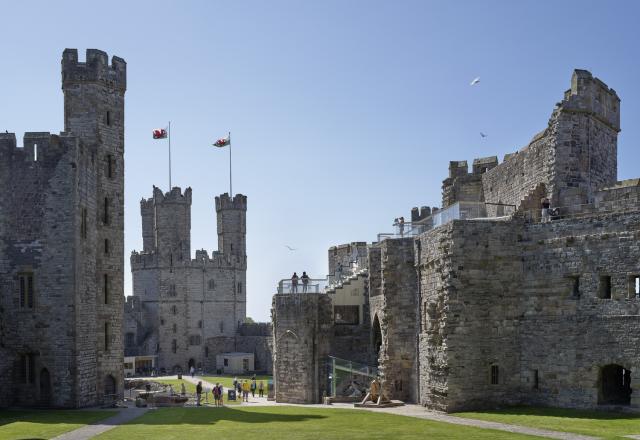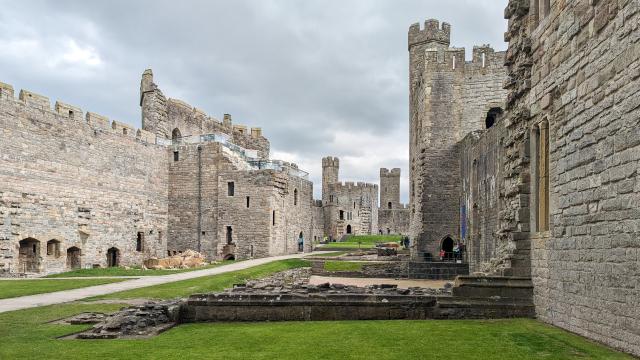
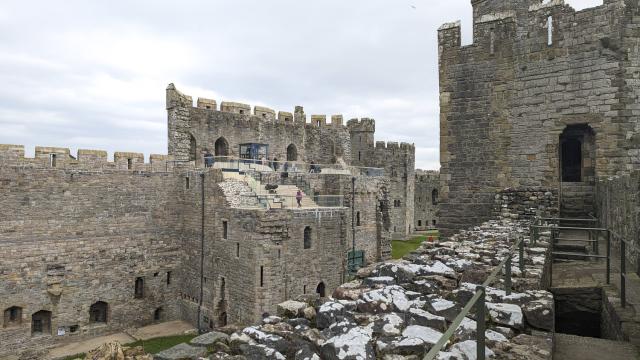
The principal gatehouse will now allow visitors to access certain areas of the medieval gatehouse for the first time in centuries.
Caernarfon Castle and its associated walled town have played a significant part in the history of Wales and the rest of the UK for much of the last millennium. The castle is among the most iconic monuments in the UK and became one of Wales’s first World Heritage Sites in 1986.
The project is sited at the castle’s monumental front gatehouse, which forms part of the popular upper-level wall walk, which had previously not been accessible to all.
Delivered for Cadw – the Welsh government's historic environment service – the £5 million project has aimed to advance the visitor experience and enhance understanding of the site by improving the visitor offer, especially for those with limited ability to access certain areas.
This has involved the introduction of a new layer of architecture to the medieval building in the form of bespoke pieces of ‘furniture’ that sit on top of and within the triple-towered gatehouse. Designed to form the negative of the building the structure and architectural features have been created to be physically separate from the castle walls, only touching the building lightly at access points to minimise the impact on the significant historic site.
Internally, three new floors of accommodation have been created, housing accessible toilets with changing places, a café, a gift shop, a reception area, staff facilities, storage, and new and immersive interpretation areas that tell the story of the people who built the castle.
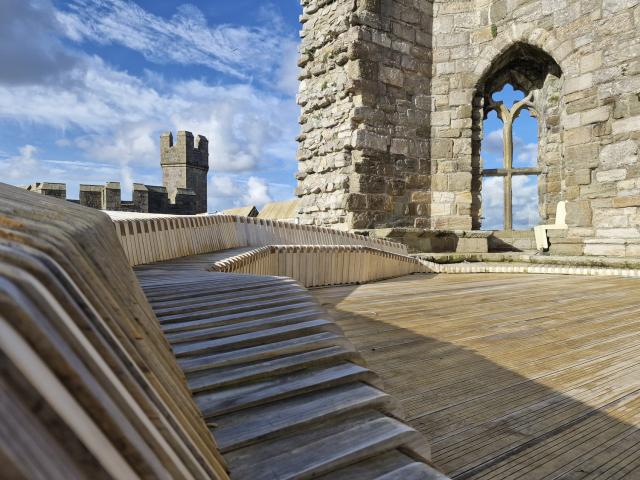
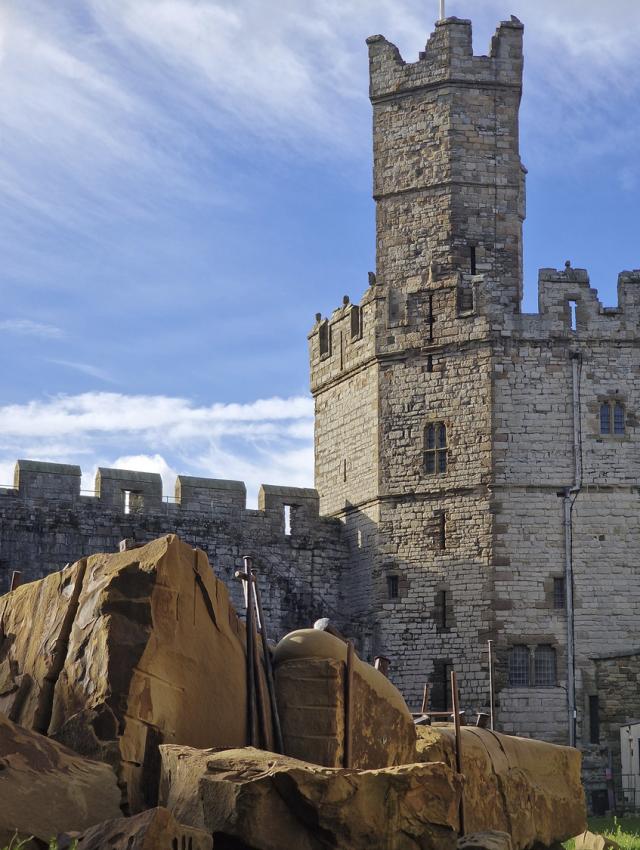
On the upper level, the architectural forms emerge from the towers below to create a viewing deck with seating areas, allowing visitors to take in views across the castle complex and beyond. Access to the deck is provided via a glazed lift, which enables visitors of all abilities to access this part of the castle for the first time in its history. It is also believed the first-time that level access has been provided in any similar UK World Heritage Site.
All new interventions consist of prefabricated units and hand-crafted, bespoke carpentry that can be inserted into and removed from the building with minimal impact on the existing structure. The detail and quality of the materials have been used to celebrate it as the grand gatehouse and high-status entrance to the castle, whilst reflecting the unfinished nature of the site through clearly contemporary additions.
Alongside this, careful conservation work including, masonry cleaning, vegetation removal, repointing, and window tracery repairs, has been carried out to the gatehouse itself and adjoining walls to help to protect the medieval structure for generations to come.
Commenting on the completed works, Stephen Anderson, Director at Buttress, said: “The completion of this project marks the beginning of a new chapter in the castle’s history. The work has not only created world-class visitor facilities, but it has also made the castle more accessible and enjoyable for all – allowing more people to learn from and appreciate this fascinating historic site.”
